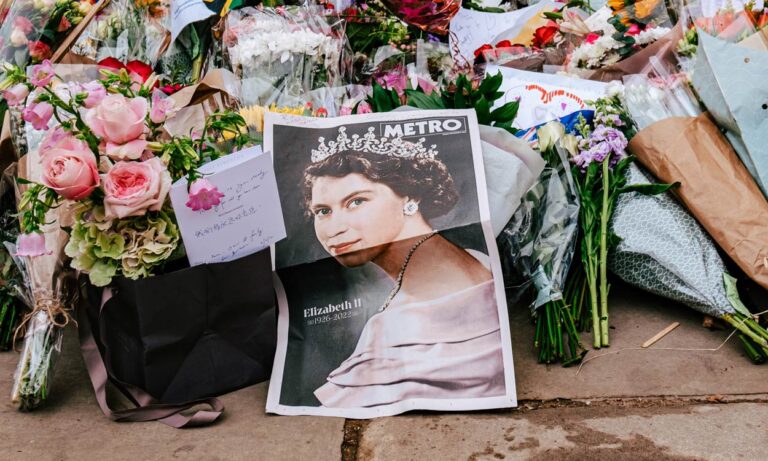Breaking news: The dangers of privileging one story over another
If news sells, breaking news sells faster. In such an economy, indifference towards a story is the likely by-product of another story receiving more attention than it should. Suddenly, a single death deemed more meaningful takes precedence over demise and suffering elsewhere.
The death of Queen Elizabeth II on 8 September 2022 did just that. Neither the floods in Pakistan nor the revelation of a mass burial site in eastern Ukraine interrupted Her Majesty’s prime-time. According to the BBC—the supposed pillar of mainstream media—“for one day, the nation stood still.” The news outlet went as far as to dedicate an entire weekend programme to footage of mournful royalists queuing to see her coffin.
But public hysteria—the culmination of her life’s privilege—cast an especially dark shadow over the death of one young man.
On 17 September, people joined together outside London’s Scotland Yard to protest the killing of Chris Kaba. Kaba, an unarmed black man, was fatally shot by a Metropolitan policeman while driving through Streatham Hill, only two weeks prior.
The Independent Office for Police Conduct (IOPC)—a public body responsible for overseeing the system for handling complaints made against police forces in England and Wales—has since opened up a homicide investigation in which it will “examine whether or not Mr Kaba’s race influenced any actions taken by the police.”
Even still, justice should not be presumed. In a society where little to no attention is paid to the deaths of black people at the hands of the police. “There is no justice,” a speaker said to the crowd gathered on that Saturday, “there’s just us.”
While a few hundred protestors screamed and cried on one side of the Thames, an estimated quarter of a million dutiful royalists flocked like sheep down the other.
“We say black lives matter… but, to the media, a black man’s life doesn’t matter,’” said Samuel, a protestor from Brixton. “Any death is sad, but with this particular one it’s different in the sense that a life was taken.” According to Daniel from London, “people would rather lose themselves in escapism than face what’s really going on.”
What really is going on? As Kehinde Andrews pointed out in Novara Media, “Anyone who understands racism in Britain enough to take to the streets, is likely aware of how the royal family has come to symbolise the white supremacy that lay at the heart of Britain’s imperial project.” In other words, it is brutally ironic that the police killing of a young man of colour has been overshadowed by the death of a symbol of the system which killed him.
Even in its modern form, the monarchy is intrinsically bound to Britain’s imperial era. It’s not her fault, some might say, she didn’t choose to be Queen. But silence is violence and, as Afua Hirsh aptly stated in The Guardian, “I can’t separate her from a reign that refused to acknowledge this reality, let alone attempt to change it.”
And yet, according to a recent YouGov poll, approximately two-thirds (67 per cent) of the British population believe we should have a monarchy. The media plays a chief role in upholding this too, by perpetuating royalist narratives, they promote and indeed sustain national grief.
But as we leave the final mourners behind, and divert our attention elsewhere, let’s not forget the hierarchy of importance. When one story matters, others are discarded or forgotten. Who knows what will break the news next?





